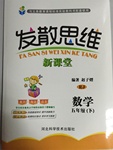题目内容
Man has a big brain
(大脑). He can think, learn and speak. Scientists once thought that men are different from animals because they can think and learn. They know now that dogs, rats and birds can learn, too. They are beginning to understand that men are different from animals because they can speak. Apes(类人猿)can understand some things more quickly than man, one or two of them have learnt a few words. But they cannot make sentences with words. They cannot think like us because they have no language. Language is a wonderful thing. Man can make our world more beautiful because he has languages. Every child can speak his own language very well when he is four or five, but no animal learns to speak. How do children learn it? Scientists do not know. What makes us speak? They do not know. They only know that man can speak because he has a brain. Animals cannot speak. They make noises when they are afraid, or angry or unhappy.根据短文内容选择最佳答案。
(l) The best topic
(标题)for this passage(文章)is ________[ ].
A
.Animals' LearningB
.Man and ApeC
.Brain and Language(2) Men are different from animals because ________.
[ ]
A
.men can understand things quicklyB
.men can learnC
.men have learned to use language(3) Apes cannot ________.
[ ]
A
.learn wordsB
.understand thingsC
.speak like men(4) Scientists now know ________.
[ ]
A
.how children learn to speakB
.man's brain helps him learn to speakC
.what happens inside their body when men speak(5) Which of the following is not true?
[ ]
A
.Apes can put the words together to make sentences.B
.Some animals can learn.C
.Apes can understand some things more quickly than men.
 发散思维新课堂系列答案
发散思维新课堂系列答案完形填空
A young man once went into town and bought himself 1 trousers. When he 2 home, he went upstairs to his bedroom and put them 3 He found that they were about two inches too 4 .
He went downstairs and there his mother and two sisters were 5 up the tea things in the kitchen. “These new trousers 6 too long.” he said. “They need to be shortened by about two inches. Whould one of you mind 7 this 8 me, please?”His mother and sisters were busy and 9 of them said 10 .
But as soon as his mother was free she went 11 upstairs to her son's bedroom and shortened the trousers by two inches. She came downstairs 12 saying anything to her daughters.
Later on, after supper, the elder sister remembered her brother's trousers. She was a kindhearted girl, 13 she went upstairs and shortened the trousers by two inches.
The younger sister went to the cinema, but when she came in, she, too, remembered 14 her brother 15 . So she ran upstairs 16 her scissors(剪刀)and took two inches 17 legs of the new trousers.You can imagine the look 18 the young man's face 19 he put the trousers on the 20 morning.
(1) A. a |
B. a copy of |
C. a pair of |
D. a piece of |
[ ] |
(2) A. arrived at |
B. got to |
C. got |
D. reached to |
[ ] |
(3) A. up |
B. on |
C. in |
D. off |
[ ] |
(4) A. big |
B. small |
C. long |
D. short |
[ ] |
(5) A. eating |
B. drinking |
C. washing |
D. keeping |
[ ] |
(6) A. be |
B. am |
C. is |
D. are |
[ ] |
(7) A. doing |
B. to do |
C. do |
D. did |
[ ] |
(8) A. on |
B. for |
C. by |
D. with |
[ ] |
(9) A. no |
B. nobody |
C. none |
D. neither |
[ ] |
(10) A. something |
B. nothing |
C. none |
D. anything |
[ ] |
(11) A. quietly |
B. noisily |
C. slowly |
D. openly |
[ ] |
(12) A. with |
B. but |
C. no |
D. without |
[ ] |
(13) A. so |
B. and |
C. then |
D. than |
[ ] |
(14) A. that |
B. which |
C. what |
D. when |
[ ] |
(15) A. said |
B. had said |
C. has said |
D. says |
[ ] |
(16) A. with |
B. without |
C. take |
D. bring |
[ ] |
(17) A. of |
B. away |
C. off |
D. in |
[ ] |
(18) A. in |
B. on |
C. over |
D. from |
[ ] |
(19) A. when |
B. while |
C. as |
D. whenever |
[ ] |
(20) A. tomorrow |
B. next |
C. second |
D. last |
[ ] |